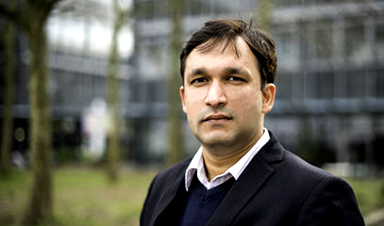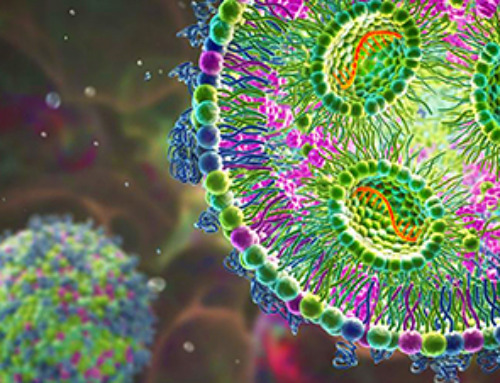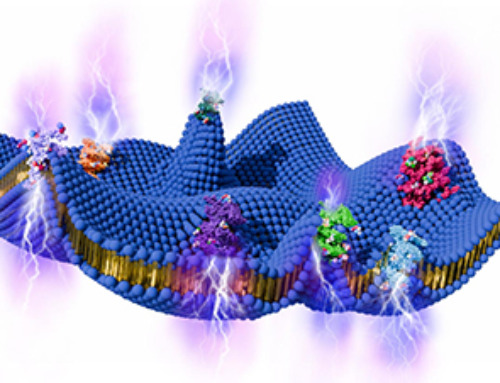When diagnosed with a disease, it’s often overwhelming to sort through mountains of medical data to figure out what therapies are available, pinpoint where they’re offered and identify the best experts to help. Complexity specialist Gunjan Bhardwaj recognizes that mining this information may best be done using a system of artificial intelligence and blockchain to help people, within and outside the medical field, navigate and comprehend such “deep, dense and diverse” data — entering a new era where all research is searchable and shareable.
Gunjan Bhardwaj studied at IIT Bombay, FH Pforzheim, MIT Sloan and EBS Oestrich-Winkel. He founded Innoplexus in 2011, a technology and product development company focused on solving challenges in life sciences and pharmaceuticals using artificial intelligence. Previously, he worked for BCG and EY. He has authored numerous articles for the Harvard Business Review, the MIT Sloan Review and other journals, and has advised businesses and nonprofit organizations. He lectures at the Frankfurt School of Finance and other schools.
Innoplexus, a leading AI and Life Sciences company, raises double-digit million dollar series C round from FinLab EOS VC and others
Frankfurt, Germany – Innoplexus AG, a leading global artificial intelligence (AI) company with over 80 patent applications in AI, machine learning and blockchain technologies, has received series C funding in the sum of double-digit millions. The round was co-led by FinLab EOS VC Fund, a venture capital fund backed by both Block.one, the publisher of the blockchain protocol EOSIO, and FinLab AG, one of Europe’s largest company builders and investors focused on financial services technologies. The FinLab EOS VC Fund invests across sectors and focuses on projects delivering value through the application of the EOSIO blockchain technology. Innoplexus AG represents FinLab EOS VC Fund’s largest investment to date.
Co-lead investor was existing shareholder ATAI Life Sciences, a global biotech company builder focused on developing breakthrough innovations in mental health. Innoplexus and ATAI closely cooperate to make the drug development process in mental health more effective and efficient by utilizing Innoplexus’ technology.
Innoplexus will use the funding to continue developing its AI and blockchain solutions and for international commercial expansion. “We are pleased to have gained yet another strong investor with the FinLab EOS VC Fund, who will support us to scale even further with their know-how and network,” says Dr. Gunjan Bhardwaj, Founder and CEO of Innoplexus.
Innoplexus’ products & solutions are used by global pharmaceutical and biotechnology companies as well as Clinical Research Organizations generating actionable insights across the drug development life cycle. The company is ushering in a new paradigm in drug discovery and development with its domain specific AI. Innoplexus is working with cutting edge technologies related to information retrieval, network analysis, computer vision, entity normalization and ontologies and has a strong focus on creating proprietary intellectual property.
“We fully believe in the mission of Innoplexus and will support them in transforming drug discovery and development into the areas of AI and blockchain. By integrating the EOSIO protocol, meaningful unpublished data could also be used for research. Innoplexus is leveraging the EOSIO blockchain to integrate unpublished data, as well as information that is trapped in silos, to aggregate growing data oceans and to accelerate drug discovery and development,’’ shares Juan Rodriguez, Managing Director of FinLab EOS VC Fund.
Image Credit: Innoplexus
News This Week
Nanomedicine in 2026: Experts Predict the Year Ahead
Progress in nanomedicine is almost as fast as the science is small. Over the last year, we've seen an abundance of headlines covering medical R&D at the nanoscale: polymer-coated nanoparticles targeting ovarian cancer, Albumin recruiting nanoparticles for [...]
Lipid nanoparticles could unlock access for millions of autoimmune patients
Capstan Therapeutics scientists demonstrate that lipid nanoparticles can engineer CAR T cells within the body without laboratory cell manufacturing and ex vivo expansion. The method using targeted lipid nanoparticles (tLNPs) is designed to deliver [...]
The Brain’s Strange Way of Computing Could Explain Consciousness
Consciousness may emerge not from code, but from the way living brains physically compute. Discussions about consciousness often stall between two deeply rooted viewpoints. One is computational functionalism, which holds that cognition can be [...]
First breathing ‘lung-on-chip’ developed using genetically identical cells
Researchers at the Francis Crick Institute and AlveoliX have developed the first human lung-on-chip model using stem cells taken from only one person. These chips simulate breathing motions and lung disease in an individual, [...]
Cell Membranes May Act Like Tiny Power Generators
Living cells may generate electricity through the natural motion of their membranes. These fast electrical signals could play a role in how cells communicate and sense their surroundings. Scientists have proposed a new theoretical [...]
This Viral RNA Structure Could Lead to a Universal Antiviral Drug
Researchers identify a shared RNA-protein interaction that could lead to broad-spectrum antiviral treatments for enteroviruses. A new study from the University of Maryland, Baltimore County (UMBC), published in Nature Communications, explains how enteroviruses begin reproducing [...]
New study suggests a way to rejuvenate the immune system
Stimulating the liver to produce some of the signals of the thymus can reverse age-related declines in T-cell populations and enhance response to vaccination. As people age, their immune system function declines. T cell [...]
Nerve Damage Can Disrupt Immunity Across the Entire Body
A single nerve injury can quietly reshape the immune system across the entire body. Preclinical research from McGill University suggests that nerve injuries may lead to long-lasting changes in the immune system, and these [...]
Fake Science Is Growing Faster Than Legitimate Research, New Study Warns
New research reveals organized networks linking paper mills, intermediaries, and compromised academic journals Organized scientific fraud is becoming increasingly common, ranging from fabricated research to the buying and selling of authorship and citations, according [...]
Scientists Unlock a New Way to Hear the Brain’s Hidden Language
Scientists can finally hear the brain’s quietest messages—unlocking the hidden code behind how neurons think, decide, and remember. Scientists have created a new protein that can capture the incoming chemical signals received by brain [...]
Does being infected or vaccinated first influence COVID-19 immunity?
A new study analyzing the immune response to COVID-19 in a Catalan cohort of health workers sheds light on an important question: does it matter whether a person was first infected or first vaccinated? [...]
We May Never Know if AI Is Conscious, Says Cambridge Philosopher
As claims about conscious AI grow louder, a Cambridge philosopher argues that we lack the evidence to know whether machines can truly be conscious, let alone morally significant. A philosopher at the University of [...]
AI Helped Scientists Stop a Virus With One Tiny Change
Using AI, researchers identified one tiny molecular interaction that viruses need to infect cells. Disrupting it stopped the virus before infection could begin. Washington State University scientists have uncovered a method to interfere with a key [...]
Deadly Hospital Fungus May Finally Have a Weakness
A deadly, drug-resistant hospital fungus may finally have a weakness—and scientists think they’ve found it. Researchers have identified a genetic process that could open the door to new treatments for a dangerous fungal infection [...]
Fever-Proof Bird Flu Variant Could Fuel the Next Pandemic
Bird flu viruses present a significant risk to humans because they can continue replicating at temperatures higher than a typical fever. Fever is one of the body’s main tools for slowing or stopping viral [...]
What could the future of nanoscience look like?
Society has a lot to thank for nanoscience. From improved health monitoring to reducing the size of electronics, scientists’ ability to delve deeper and better understand chemistry at the nanoscale has opened up numerous [...]






















Leave A Comment